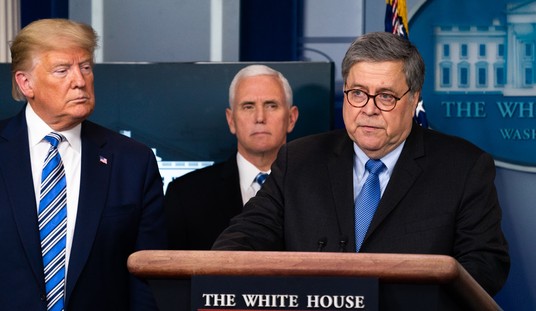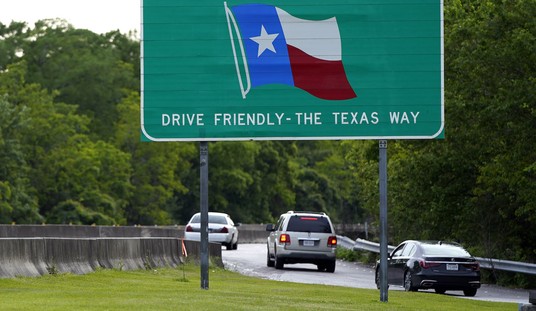Returning to our look back at The Clash’s second, and “half great,” album, Give ‘Em Enough Rope (1978)…
One of the album’s biggest flaws is that too many of the songs touch on similar themes, to the point where they begin to run together in your memory.
For instance, both the powerful “English Civil War” and the less successful “Last Gang In Town” tackle violence in the public square:
The former warned that the neo-Nazi National Front was on the rise; the latter concerns the often violent British teen subculture rivalries between mods and rockers, punks and teddy boys, and skinheads vs. everyone else.
In retrospect, it’s hard to calculate whether or not the National Front was ever a serious threat to the social order, or just a jack-booted boogeyman whose influence was exaggerated by far left “anti-racists.”
Regardless, “English Civil War” was one of numerous anti-Nazi songs of the era that collectively reduced the NF’s “cool” factor and helped hasten its decline.
As for the latter song: For the average North American listener, “teds” and mods were even less familiar creatures than Nazi street thugs, and their battles a baffling phenomenon — one familiar, if at all, from listening to The Who’s Quadrophenia.
However, in the England of The Clash, subculture rivalries were very real and often bloody, as Joe Strummer learned when he attended one rockabilly concert too many in working class “teddy boy” territory. He was sniffed out as “a public schoolboy playing at being working class, so [they] gave him quite a pasting.”
Strummer shrugged off the incident, telling chief roadie “The Baker” that it was all part of suffering for his art.
(The Clash front man’s bone-dry sense of humor, as well as his compulsive self-invention, can make it annoyingly hard to tell when he’s kidding around. He probably wasn’t sure himself sometimes.)
(Alas, too many earnest fans continue to take his off-hand remarks as holy writ, even though they surely know by now that “Joe Strummer” — down to his name, age and accent — was as much a creation as any of his songs.)
https://www.youtube.com/watch?v=E6zcTRAeNp0
Politically-motivated bands of the era deduced that teens who beat each other up because of the color of their Doc Marten’s laces were unlikely to come together to make positive, substantial social changes.
Clash contemporaries released numerous songs to that effect, most memorably Sham 69’s “If the Kids Are United” and The Specials’ “Do the Dog.”
Maybe all these songs “worked,” because decades later, even the most charming among them sound more like antiquated artifacts (a la “I’m Just Wild About Harry”) than chilling apocalyptic prophecies.
(Note the fact that I just had to spend a hundred or so words explaining them to you…)
Tody, in post-Clash England, you’re more likely to see the latest generation of “anti-racists” teaming up with belligerent Muslims to attack the EDL.
Coming soon? The war between the gypsies and everyone else, from what I hear:
It was about 6.45pm on Thursday night when the first police patrol car arrived in Page Hall. They’d been summoned by a resident from one of the two-up, two-down terraces complaining about a gang of Roma children making a racket outside their house.
“GUYS,” yelled an officer as he got out of the car and ran up Hinde Street toward a group of 20 children hanging about. “GO HOME. NOW!” The children scarpered like sparrows.
The Page Hall residents’ patrol – which on Thursday comprised Rees, a half-Jamaican/half-Scottish woman called Fatima, a white woman called Beverley, a Pakistani landlord who asked to be known just as Mr Khan, and a young white couple named Jonathan and Amy – were pleasantly surprised.
“First time I’ve ever seen them even get out of their car,” said Fatima. “Usually the police just drive past. It’s probably because the media is here.”
That example of trans-ethnic solidarity wasn’t quite what The Clash or their contemporaries ever envisioned when they called for racial unity.
At this point, I’m almost nostalgic for the days when the mods and the rockers went at it on Brighton Beach.
Speaking of nostalgia:
Post-9/11, the terrorist acts we witnessed in the 1970s — kidnappings, hijackings to Cuba, the occasional assassination — seem almost pathetically puny, with the SLA providing much needed comic relief between bank heists.
That’s why I laughed out loud during Spielberg’s otherwise somber Munich, when each undercover Mossad agent tells a suspicious Arab that he’s really with the FLQ or the IRA or whatever one of the many contemporaneous, fellow-traveling acronyms he can think of fast enough.
Anyway, that’s the atmosphere that inspired “Tommy Gun.”
One man’s terrorist may be another man’s freedom fighter, but in this song, Strummer shrugs off his own foolish flirtations with radical chic long enough to accuse them all of being something quite different: Fame whores, disposable pawns, and even capitalist commodities.
Tommy gun
You can be a hero in an age of none
Tommy gun
I’m cutting out your picture from page one
I’m gonna get a jacket just like yours
An’ give my false support to your cause
Whatever you want, you’re gonna get it!
“Guns on the Roof,” meanwhile, is basically “Tommy Gun”‘s parasitic twin; the song’s best feature is its riff — lifted from The Who’s “I Can’t Explain.”
The song’s puzzling inclusion on this album served merely to immortalize one of the most embarrassing public events in the band’s history:
The Clash went out of their way to get nicked on March 30 1978. The band was holed up in their rehearsal space, Rehearsal Rehearsal, situated in the Gin House at Stables Market on Chalk Farm Road, working on the ‘Give ’Em Enough Rope’ album. Bassist Paul Simonon and drummer Topper Headon took a break on the roof to play with Headon’s air rifle, relieving the tedium of being left-wing firebrands by taking pot shots at passing pigeons. Sadly, the befuddled rhythm section didn’t realise the birds they were capping were actually [expensive] racing pigeons stretching their wings. (…)
Eventually, the avicidal duo were summonsed to Clerkenwell Magistrates Court, where they pleaded guilty and were fined £30 each, and ordered to recompense the bereaved pigeon fancier to the tune of £700. (…) The episode was also the inspiration for The Clash track ‘Guns On The Roof’, which would have been much better if it was called ‘Pigeons in the Street’.
In The Return of the Last Gang in Town, Clash biographer Marcus Gray pokes fun at the band’s self-aggrandizement, which reached epic proportions in the Give ‘Em Enough Rope era:
…being arrested for shooting pigeons (…) was even more ridiculous than being arrested for stealing pillow cases or spraying your own band’s name on the wall. It proved hard for the likes of the NME‘s “Inspector Migraine” to resist having a few more cheap laughs at the band’s expense. (…)
Joe’s lyric is an indictment of global arms dealing, covert military action and terrorist activity. (…) In vain did the band protest that the song had nothing but its title in common with the Pigeon Shooting Incident. Media representatives not unreasonably assumed a connection, and were troubled by the discrepancy between Joe’s chest-beating and the mental picture they had of a bunch of overgrown schoolboys taking potshots at a mechanic’s treasured pets.
As a result, Joe took yet more flak for what was deemed to be a particularly desperate piece of Clash Mythologising.
That brings us to another ill-advised tune:
“Cheapskates” might not have seemed out of place on the band’s debut album, but it certainly had no business rounding out Give ‘Em Enough Rope.
One of the Clash’s finest songs, “Complete Control,” is a rollicking, hand-biting, heart-racing indictment of the music industry.
Alas, “Cheapskates” tries too hard to replicate that song’s magic. A year on, the band’s fresh complaints about The Price of Fame come off, in Marcus Gray’s words, as “self-indulgent whinges:”
“When [Joe] moves on to deny that members of his band hoover up copious amounts of [cocaine] and keep company with model girls, he pushes his luck too far. By the time the song was released, Mick’s predilections for both would be common knowledge.
This information also served to rob “Drug Stabbing Time” [another song on Give ‘Em Enough Rope] of much of its comedy value, and — in spite of the fact that “Cheapskates” was intended to set the record straight — bring down more accusations of hypocrisy upon the Clash’s heads.
In fact, “Drug Stabbing Time” is particularly cringe-inducing in retrospect:
The band’s drummer Topper Headon eventually devolved from the impeccable, industrious “human rhythm machine” who left producer Sandy Pearlman struggling for suitably lauditory adjectives, to a gaunt heroin addict, unable to keep a beat, and with more serious charges on his record than pigeon shooting.
Oh, and — and speaking of Pearlman — that song’s even got a cow bell.
Which brings us, at last, to the less-than-promising sounding “Julie’s Been Working For the Drug Squad.”
It’s ostensibly about a UK police investigation called “Operation Julie,” but what matters is the finished product rather than its now-forgotten inspiration.
Listen to that whorehouse piano.
Then take in the same wryly funny lyrics that distinguished the album’s other outstanding compositions — but, significantly, finally, the words to “Julie…” have nothing to do with the band’s juvenile misadventures or Joe’s half-digested politics (see above.)
“Julie…” is a short film made from music — a “jazzy rhythm and blues sound that would soon become a regular part of The Clash repertoire,” as one author put it.
Indeed.
Possibly chastened by the lashings they’d deservedly received from fans and critics alike, The Clash’s next album, its third, would make history.
But that was more than a year in the future.
Meantime, at the mid-November 1978 launch party for Give ‘Em Enough Rope, Topper and Robin stole all the free promotional copies they could get their hands on, and ran down the road to sell them at a second hand record shop.









Join the conversation as a VIP Member